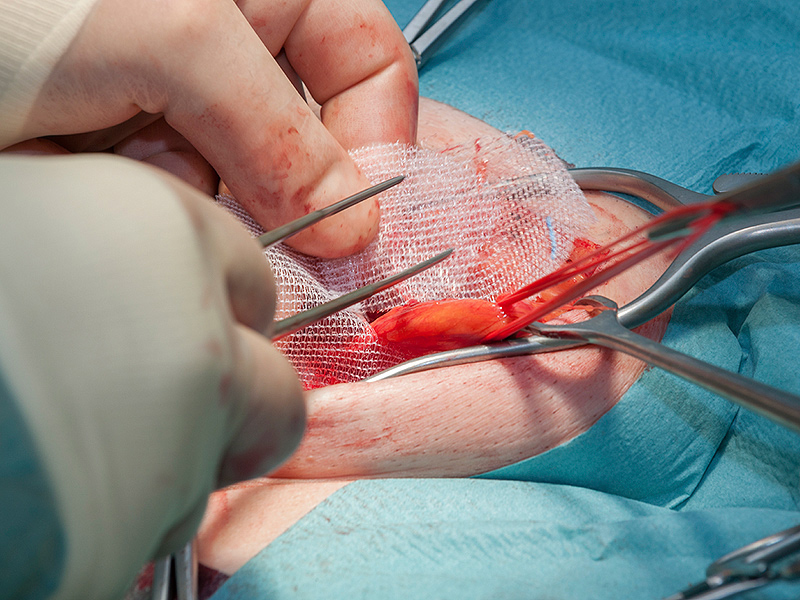Surgical instruments and the doctors who use them to place transvaginal mesh, have been found to cause injuries to patients.
The tools include needle passers, trocars, or stainless steel hooks, the Capio needle and instruments for sling and transobturator placement. Surgical tools are used to affix the pelvic mesh to the tissues and anchors that are implanted deep into ligaments, making them impossible to remove.
Surgical instruments often come pre-packaged in mesh kits to treat pelvic organ prolapse (POP).
Underestimating the harm, the U.S. Food and Drug Administration (FDA) had the tools share a class I low-risk category with Band-Aids and wheelchairs. But data showed otherwise.
The FDA’s MAUDE database of adverse events, showed hemorrhage, bleeding, organ perforation, nerve injury and pain which were related to the use of the tools used in a “blind” procedure to place mesh.
That means the doctor cannot directly visualize placement of surgical mesh and must rely on surgical instruments and feel, despite the fact that they pass near nerves, tissues and organs.
On January 6, 2017, the FDA finally reclassified these tools to reflect a moderate risk or class II, even though some public comments in the Federal Register suggested the class III or high-risk category would have been more appropriate.
In making that recommendation, the FDA had searched its Medical Device Report (MDR) database from January 2008 to December 2015 looking for suspected device-associated deaths, serious injuries and malfunctions.
In all, it found 463 MDRs, with most of them submitted by manufacturers, 14 by a user facility and 11 voluntary reports.
Interestingly, reports from law firms, often the entity most likely to report a complication, were not included.
“The FDA then removed reports that included the terms attorney and plaintiff, as such reports typically contain few details and stem from patient litigation.”
Boston Scientific and Ethicon were the two manufacturers with the highest number of instrument malfunctions including a suture and needle detaching or breaking.
Boston Scientific had 316 reports while Ethicon (Johnson & Johnson) had 90, with Boston Scientific’s Pinnacle Pelvic Floor Repair Kit representing the highest number of problems at 134 and Uphold Vaginal Support System at 167.
Reclassifying to class II requires tool manufacturers demonstrate a reasonable assurance that the surgical instruments are safe and effective, biocompatible, sterile, and labelled correctly as to their expiration date, methods and instructions, and mesh design that’s compatible with the device.
The reclassification of mesh surgical tools was put in the Federal Register in May 2014, the same time the FDA published a proposed order to reclassify the larger surgical mesh for pelvic organ prolapse (POP) from class II to class III or high risk.
POP mesh was finally reclassified in January, 2016. At the same time, mesh makers were given 30 months to prove their mesh was safe and effective by requiring it submit the medical device to premarket approval (PMA), the most stringent review by the FDA that also applies to pharmaceuticals.
Instead, most POP mesh has already been quietly removed from the market by manufacturers, eager to avoid the future cost of thousands of defective product lawsuits.

